
OR
Trouble in ruling alliance as four candidates including three from ruling coalition vie for the post of VP
Published On: March 12, 2023 08:40 AM NPT By: Republica | @RepublicaNepal

KATHMANDU, March 12: Four candidates including three from the ruling coalition have fielded their candidacy for the post of vice president as a fresh rift surfaces among the parties in the ruling alliance.
A total of three candidates from the ruling parties have fielded candidacy for the post of vice president after there was no consensus on a single candidate from the ruling alliance. The CPN-UML has separately fielded candidacy of Asta Laxmi Shakya for the post of vice president.
The election to the post of vice president is scheduled for March 19.
JSP has fielded the candidacy of its parliamentary party leader Ram Shahaya Prasad Yadav and women leader Pramila Yadav. Similarly, Janamat Party, which forged a working alliance with Loktantrik Samajbadi Party and Nagarik Unmukti Party, has fielded the candidacy of Mamata Jha for the post of vice president.
Although the ruling alliance was able to forge consensus on the presidential candidate, it could not do so for the election of vice president. Ruling parties have appeared apprehensive of the decision of the Election Commission (EC) and the remarks of Chief Election Commission (CEC) Dinesh Kumar Thapaliya.
EC has maintained that since the president was a male from Khas/Arya ethnic group, the vice president should be a woman from another ethnic group. This comes against the plan of the ruling parties to give JSP to field candidacy of its PP leader Ram Shahaya Yadav to the post in order to pave the way for Chairman Upendra Yadav to contest the by-election to be held in Bara. Chairman Yadav earlier lost the election to Janamat Party Chairman CK Raut.
The Office of Vice Presidential Election had fixed the time of registration of candidature from 9 am to 2 pm on Saturday. The candidacy of Shakya for the post of vice president was proposed by Chairman K P Oli, Subash Nembang, Chhabi Lal Bishwokarma, Gorkana Bista and Raghubir Mahaseth. The proposal was seconded by Krishna Gopal Shrestha, Mahesh Bertaula, Tulasa Dahal, Bhagwati Neupane and Yashoda Rijal.
Talking to media persons after the meeting, UML Chairman Oli said that UML candidate was competent in all respects for the post of vice president. Similarly, Shakya told media persons that she fielded her candidacy to help strengthen democracy. She also expressed hope that she would be able to receive support from political parties.
Similarly, the candidacy of the ruling alliance candidate Ram Shahaya Yadav was proposed by Ashok Kumar Rai, Pradip Yadav and Kisan Shrestha of JSP, Shakti Basnet of CPN (Maoist Center) and Ramesh Jung Rayamajhi of NC. Similarly, his candidacy was seconded by Rekha Yadav, Ambika Kafle, Prakash Jwala, Khimlal Devkota and Bhanu Bhakta Joshi.
As the EC maintained that the vice presidential candidate must be a woman, the JSP has decided to field the candidacy of Pramila Kumari as well. Ranju Jha, Mrigendra Kumar Singh Yadav, Nawal Kishore Shah, Dipak Karki, Raj Kishore Yadav proposed her candidacy while Anita Devkota, Bimala Subedi, Sita Gurung and Manish Suman seconded the proposal.
The candidacy of Janamat Party’s Mamata Jha was proposed by Abdul Khan, Anita Devi, Ganga Ram Chaudhary, Abiram Sharma and Rupa Kumari Yadav, while the proposal was seconded by Goma Sapkota, Binita Kumari Singh, Basanta Kumar Kushwaha, Ram Prakash Chaudhary and Rani Kumari Tiwari.
The president and vice president of Nepal are elected by an electoral college composed of the members of the Federal Parliament and the provincial assemblies as per Article 62 of the Constitution of Nepal, 2015. The Electoral College consists of 884 members, including 275 members of the House of Representatives (Lower House), 59 members of the National Assembly (Upper House), and 550 members of seven provincial assemblies.
The weight of each vote was calculated based on the ratio of lawmakers to the total population of the country, as determined by the latest national census. The weightage of each vote varies according to the Federal law, with a member of the federal parliament's vote carrying 79 votes, and a member of the provincial assembly's vote carrying 48 votes.
You May Like This
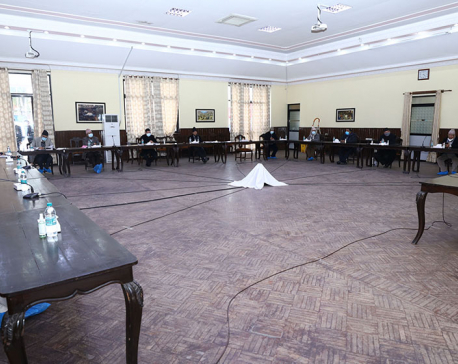
Ruling coalition urges people to elect common candidates in upcoming elections
KATHMANDU, Oct 28: The ruling coalition of five-parties has urged its leaders and cadres as well as the voters to... Read More...
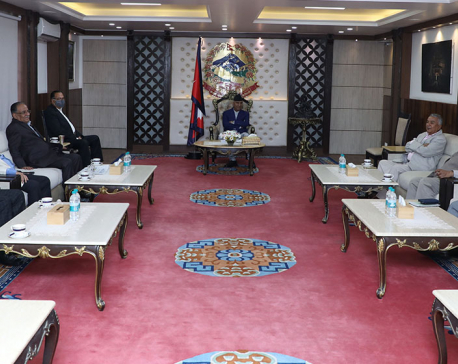
Ruling coalition meeting to discuss distribution of seats
KATHMANDU, August 23: A meeting of the top leaders of the ruling coalition is being held today to discuss the... Read More...

Election Commission monitors election campaign in Bhaktapur
KATHMANDU, Nov 28: Election Commissioner Sudhir Kumar Shah has carried out on-site monitoring of the ongoing election campaign in Bhaktapur... Read More...






Just In
- Police report one death in Bhojpur jeep accident
- Nepal faces Bangladesh Red in int'l U-19 Volleyball Championship final
- Nepal Investment Summit: Two organizations sign MoU for PPP cooperation
- Sita Air flight to Ramechhap returns to Kathmandu due to hydraulics issue
- Man found dead in Dhanusha
- Gold prices decreases by Rs 400 per tola
- Ilam-2 by-election: UML candidate Nembang secures over 11,000 votes
- High-voltage power supply causes damage to 60 houses




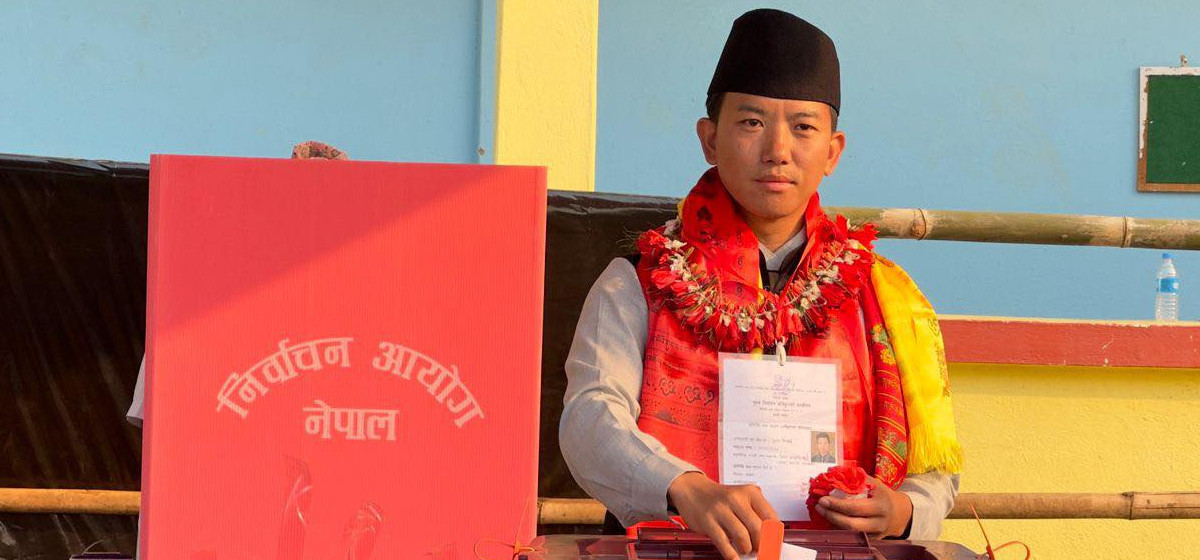

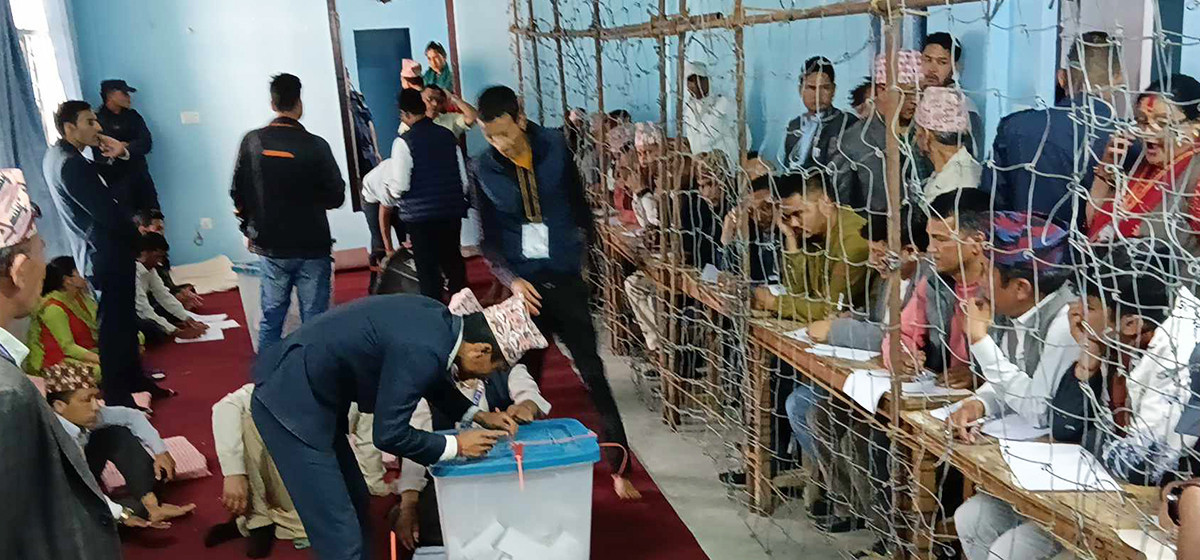


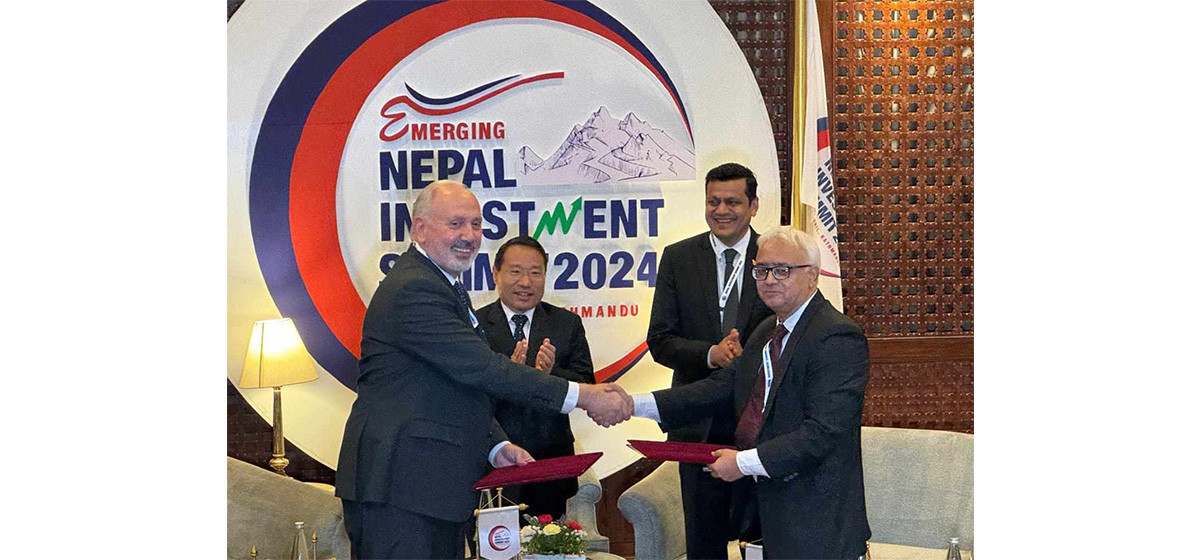
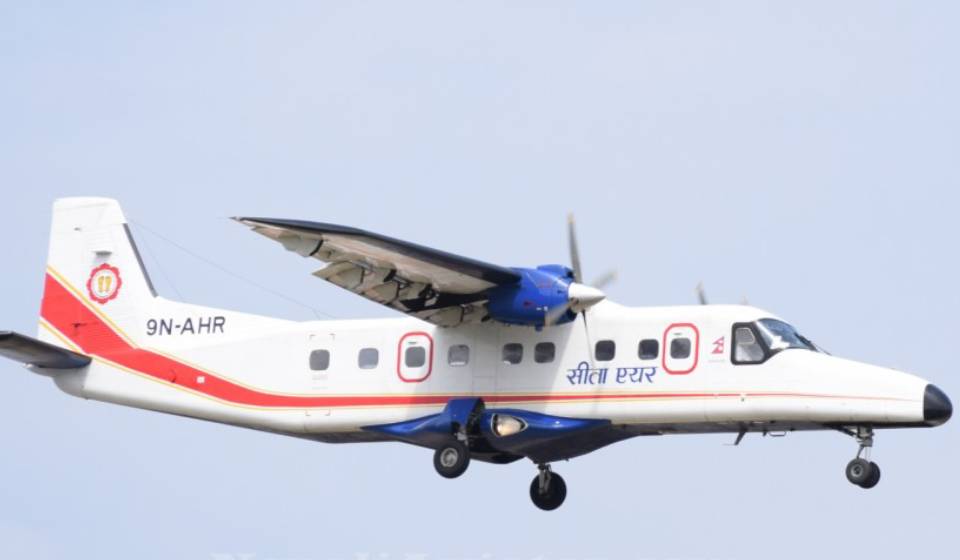
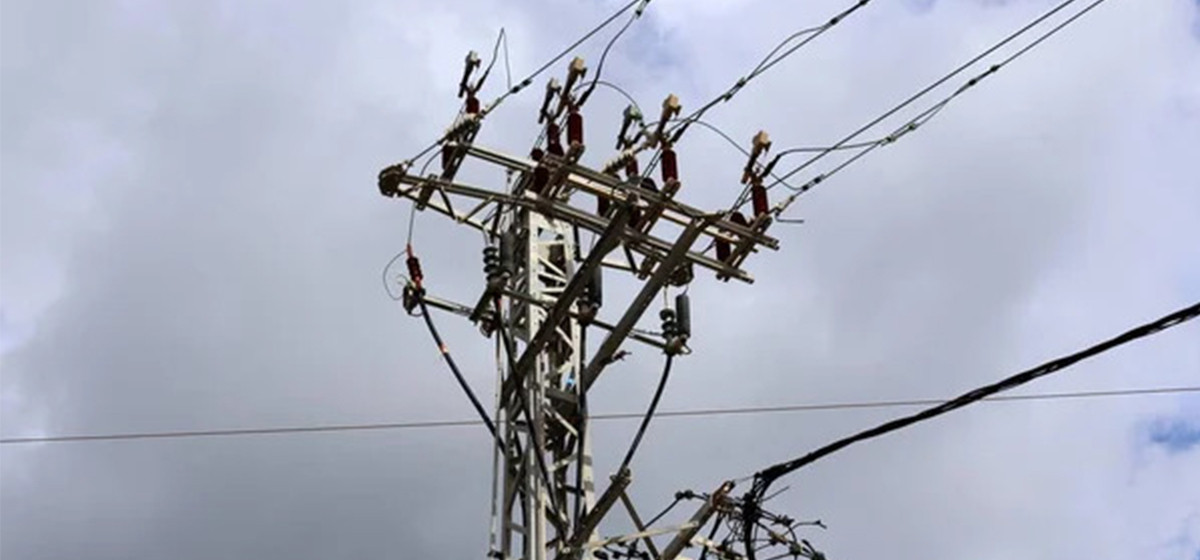
Leave A Comment